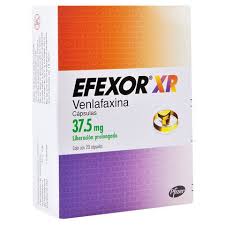Tioconazole
Tioconazole is an antifungal agent frequently utilized for the treatment of vaginal yeast infections attributed to the fungus Candida albicans. It is classified as an azole antifungal, functioning by obstructing the synthesis of ergosterol, an essential element of the fungal cell membrane. The absence of ergosterol results in damage to the fungal cell membrane, ultimately leading to the demise of the fungus.

Tioconazole is marketed under several brand names, including:
– Monistat 1-Day (for vaginal application)
– Trosyd (available in certain regions)
– Vagistat-1 (another variant)
Forms and Dosage
Tioconazole is predominantly offered in vaginal formulations, such as:
– Creams (generally at a concentration of 0.4%)
– Suppositories or ovules (also typically at 0.4% or 300 mg)
It is most commonly prescribed as a single–dose treatment for vaginal yeast infections. In certain instances, a treatment course lasting 3 to 7 days may be recommended, contingent upon the infection’s severity.
Mechanism of Action
Tioconazole operates by:
– Inhibiting the enzyme lanosterol 14-demethylase, which is vital for ergosterol production.
– The disruption of ergosterol biosynthesis leads to the impairment of the fungal cell membrane, resulting in the death or growth inhibition of the yeast.
Indications
Tioconazole is primarily indicated for the management of vulvovaginal candidiasis (vaginal yeast infections), which are frequently caused by the fungus Candida albicans.
For treating a vaginal infection, the cream or suppository is typically inserted into the vagina using the applicator included in the packaging. The specific dosage and duration of treatment depend on the product utilized, but generally, a single dose is sufficient for most infections.
1.Potential Adverse Reactions
Tioconazole may present certain adverse reactions, including:
– Sensations of burning, itching, or irritation in the vaginal area
– Discomfort in the abdominal region
– Occasional headaches
– Rare allergic responses, which may manifest as itching, swelling, or rashes.
Should you encounter severe reactions such as hives, breathing difficulties, or swelling—particularly of the face, throat, or lips—immediate medical assistance is imperative.
2.Safety Considerations
Pregnancy: Tioconazole is generally deemed safe for use during pregnancy, particularly in a single-dose format; however, consulting a healthcare professional prior to use is advisable.
Breastfeeding: As tioconazole is not significantly absorbed into the bloodstream, it is typically regarded as safe for nursing mothers, yet a discussion with your physician is recommended.
Use in Children: The safety profile of tioconazole for children under 12 remains uncertain, thus adherence to medical advice is crucial.
3.Drug Interactions
Tioconazole, when administered vaginally, usually exhibits no significant drug interactions. Nevertheless, it is prudent to inform your healthcare provider of any concurrent medications or treatments to preclude potential interactions.
Efficacy
Tioconazole is recognized for its high efficacy in addressing uncomplicated vaginal yeast infections, with a single-dose treatment often sufficient for most cases. Should symptoms persist post-treatment, it is essential to consult a healthcare provider for further assessment.
When to Consult a Medical Professional
Seek medical advice if your symptoms fail to improve or worsen after using tioconazole. Additionally, if you experience unusual or severe side effects, particularly signs of an allergic reaction, or if you are uncertain whether your symptoms stem from a yeast infection or another condition, such as a sexually transmitted infection (STI), professional guidance is warranted.
Other Important Notes
Tioconazole is specifically intended for the treatment of vaginal yeast infections and is ineffective against other infection types, including bacterial infections or STIs. It is also crucial to refrain from using it if you have a history of recurrent infections.
As of my last update in October 2023, there are no significant indications that tioconazole is poised for major transformations that would impact its current application or efficacy in the immediate future. Nevertheless, the landscape of tioconazole and azole antifungal medications may evolve, shaped by advancements in medical research, clinical methodologies, and pharmaceutical innovations. Here are several key areas to monitor:
Innovations in Treatment Formulations
– New Delivery Mechanisms: While existing formulations predominantly consist of creams and suppositories for vaginal application, future investigations may explore alternative delivery systems, such as tablets, films, or dissolvable inserts, aimed at enhancing patient adherence and convenience while precisely targeting infection sites.
– Combination Therapies: Future formulations may integrate tioconazole with other antifungal agents or medications to address complex or recurrent infections. For instance, pairing it with antibacterial agents could facilitate the treatment of mixed infections involving both fungi and bacteria.
The Challenge of Antifungal Resistance
– Antifungal Resistance: Similar to many antimicrobial agents. The rise of drug-resistant strains of Candida and other fungi poses a significant challenge. While tioconazole continues to demonstrate efficacy against numerous strains, the potential for resistance to develop remains, particularly among individuals who frequently utilize antifungals or do so over extended periods. The future may see the emergence of more targeted therapies designed to combat antifungal resistance or the introduction of new classes of antifungal medications effective against resistant strains.
Enhanced Awareness and Accessibility of Over-the-Counter Treatments
– OTC Availability: Tioconazole is accessible over-the-counter in certain regions for the treatment of vaginal yeast infections. In the future, there may be a concerted global effort to broaden over-the-counter access to antifungals, particularly. If their safety for self-treatment is substantiated.
– Telemedicine and Online Consultations: With the increasing prevalence of telehealth services. The landscape of patient consultations is evolving, potentially facilitating greater access to antifungal treatments.
As of my last knowledge update in October 2023. There are no significant signs that tioconazole is on the verge of substantial changes . Affect its current application or effectiveness in the foreseeable future. However, the trajectory of tioconazole and azole antifungal medications may shift. Influenced by ongoing trends in medical research, clinical practices, and pharmaceutical advancements. Here are a few noteworthy areas to observe







